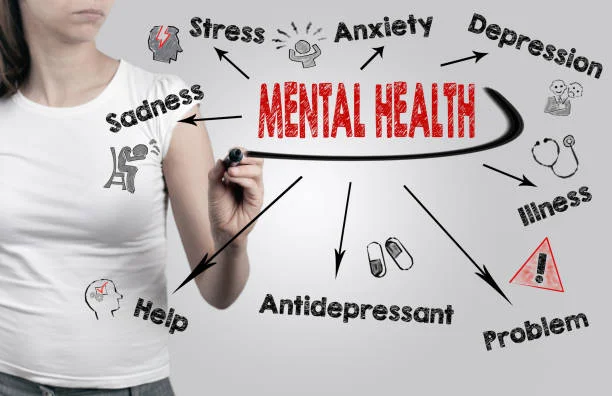For decades, mental health treatment in the United States leaned heavily on prescriptions. Antidepressants, antipsychotics, and mood stabilizers were written into countless care plans, often with little space left for other interventions. While medication has saved and stabilized lives, there’s a growing awareness that relying solely on pills can leave important needs unmet. Many people now find themselves caught between gratitude for medication’s help and frustration with its side effects or limits. That tension is fueling a shift: one where mental health care is expanding beyond the prescription pad to include therapy, lifestyle changes, and community-based approaches that honor the complexity of being human Overmedication to Mindful Healing.
The Age Of Heavy Prescriptions
The late 20th century ushered in what many call the “Prozac era.” Suddenly, depression and anxiety were being addressed with a new class of antidepressants that promised better outcomes and fewer side effects than older drugs. Prescriptions soared. By the early 2000s, medications for mood disorders were among the most commonly filled in pharmacies. On one hand, this surge meant people who once suffered in silence were finally finding relief. On the other, medication often became the first and last line of defense, overshadowing therapy or deeper exploration into root causes. Some patients cycled through pills that never quite worked, while others dealt with side effects ranging from weight gain to emotional blunting. The narrative was simple: if you were struggling, there was a drug for it. But simple doesn’t always mean sufficient.
Dive into posts connected to your interests—discover more!
Living In The Aftermath Of Overreliance
As more people began speaking openly about their experiences, a pattern emerged. Many patients were grateful for the immediate relief medication provided, yet they also longed for something more sustainable. For some, the wake-up call came while tapering off prescriptions. Take the very common experience of dealing with Seroquel withdrawal. Originally prescribed for conditions ranging from bipolar disorder to sleep troubles, Seroquel can bring intense side effects when discontinued. People report insomnia, agitation, and even physical discomfort that makes it difficult to function. Experiences like these highlight how medications, while helpful in the short term, can create complicated long-term relationships that aren’t easy to navigate. Withdrawal challenges force many to rethink the balance between medication and broader support systems. It’s not about demonizing prescriptions but about acknowledging that leaning solely on them can create new problems of Overmedication to Mindful Healing.
Therapy’s Renewed Place At The Center
One of the most promising shifts has been the re-centering of therapy in mental health care. Cognitive behavioral therapy, dialectical behavior therapy, and trauma-informed approaches have all shown strong evidence for helping people manage depression and anxiety. Unlike medication, therapy gives people practical tools that extend beyond symptom suppression. A person can learn to spot thought patterns, regulate emotional responses, and build coping strategies that last a lifetime. This isn’t a rejection of medication but an acknowledgment that therapy often does what pills cannot: it addresses the why behind the pain. For many, therapy also reduces dependence on medication, either by lowering the needed dosage or by making eventual tapering more manageable. Insurance barriers remain a stubborn problem, but the push for more accessible therapy is a growing part of the conversation.
Lifestyle And Environment As Therapy
Beyond therapy, there’s also an increased focus on lifestyle changes that support mental health. Exercise, for instance, has been consistently shown to rival antidepressants in improving mood, particularly for mild to moderate depression for Overmedication to Mindful Healing. Nutrition plays a role as well, with evidence linking certain dietary patterns to reduced risk of depressive symptoms. Even something as deceptively simple as time spent outdoors can lift mood and reduce stress hormones. The environment matters too. A person in a high-stress job or unstable living situation may find medication only goes so far without changes in daily life. As clinicians and patients alike start to value the interplay between lifestyle, therapy, and prescriptions, treatment plans are becoming more holistic.
Innovations In Treatment
In recent years, the landscape of depression treatments has expanded in surprising ways. Ketamine therapy, once dismissed as fringe, is now being used in specialized clinics to help those who haven’t responded to traditional antidepressants. Transcranial magnetic stimulation (TMS) offers a non-invasive way to stimulate mood-related brain regions. Even psychedelics are being revisited, with research suggesting that substances like psilocybin may open new doors for treating chronic depression when paired with therapy. These approaches don’t work for everyone, but they symbolize a cultural and medical shift: mental health treatment is no longer confined to the same few medications. With more tools available, individuals have a greater chance of finding something that works for them without feeling trapped in a cycle of side effects and withdrawal.
The Role Of Community And Connection
Healing isn’t just personal; it’s social. Isolation is one of the most persistent barriers to mental health recovery, and it’s one that medication alone can’t solve. Peer support groups, community-based programs, and online spaces are providing safe havens for people to share their experiences without judgment. These connections can normalize the struggles of tapering off medication, adjusting treatment, or exploring new therapies. Just knowing that others have walked the same path can ease the loneliness that often makes mental health struggles harder to bear. Community-based approaches also underscore an important truth: recovery isn’t linear, and it doesn’t have to be done alone.
Shifting The Narrative
What we’re witnessing is a cultural recalibration. Medication remains a valuable tool, but it’s no longer being treated as the only tool. The story is becoming less about quick fixes and more about long-term sustainability. Patients are reclaiming agency, pushing for individualized care, and voicing the need for treatments that respect both body and mind. The medical establishment, in turn, is beginning to respond, albeit slowly, to the call for more comprehensive approaches. While progress is uneven, the direction is clear: mental health care is broadening its scope in ways that could redefine how future generations understand and pursue wellness.
A Broader Way Forward
The future of mental health treatment doesn’t hinge on replacing one approach with another. It’s about balance. A person may still benefit from medication, but that benefit can be amplified when combined with therapy, lifestyle adjustments, and supportive relationships. Expanding access to innovative therapies, tackling insurance barriers, and reshaping cultural conversations will be ongoing challenges. Still, the shift away from a medication-only model is already offering hope to those who once felt stuck. What was once a narrow corridor of options is slowly opening into something far more human, acknowledging that people aren’t just symptoms to suppress but whole beings with layered needs.New Horizons
Mental health care is at a crossroads, but for once, that’s good news. Instead of being boxed in by the limitations of overmedication or Overmedication to Mindful Healing, more people are being offered a spectrum of choices that honor their individuality. Whether that means finding the right prescription, committing to therapy, embracing lifestyle changes, or exploring emerging treatments, the journey is becoming more flexible and more humane. Healing isn’t about erasing struggle; it’s about creating conditions where resilience can thrive. That shift in thinking is rewriting not just treatment plans but the entire experience of what it means to seek and find care.
Unlock more tips, insights, and stories—click to explore more on 2A Magazine!







